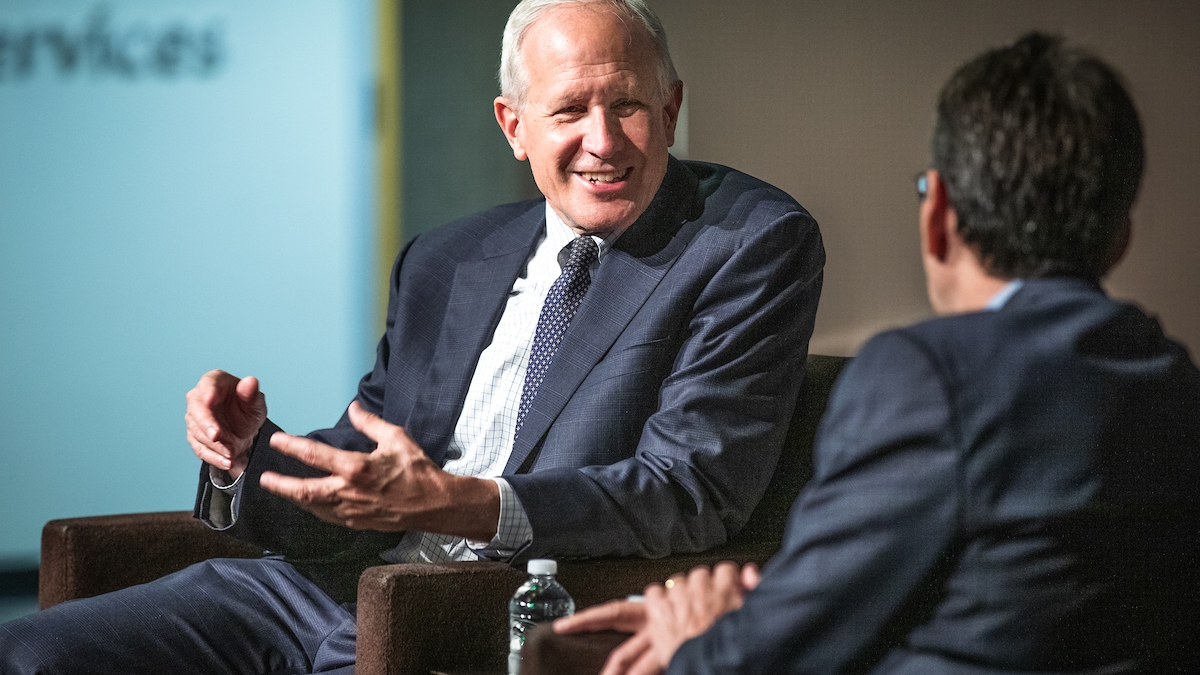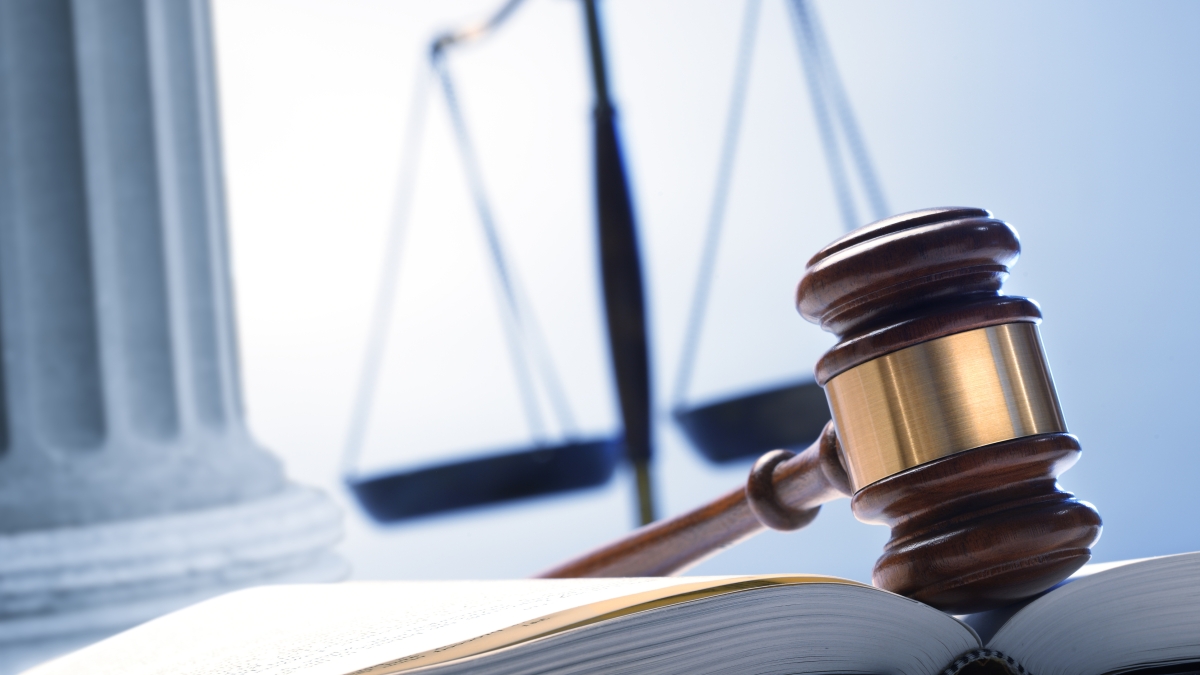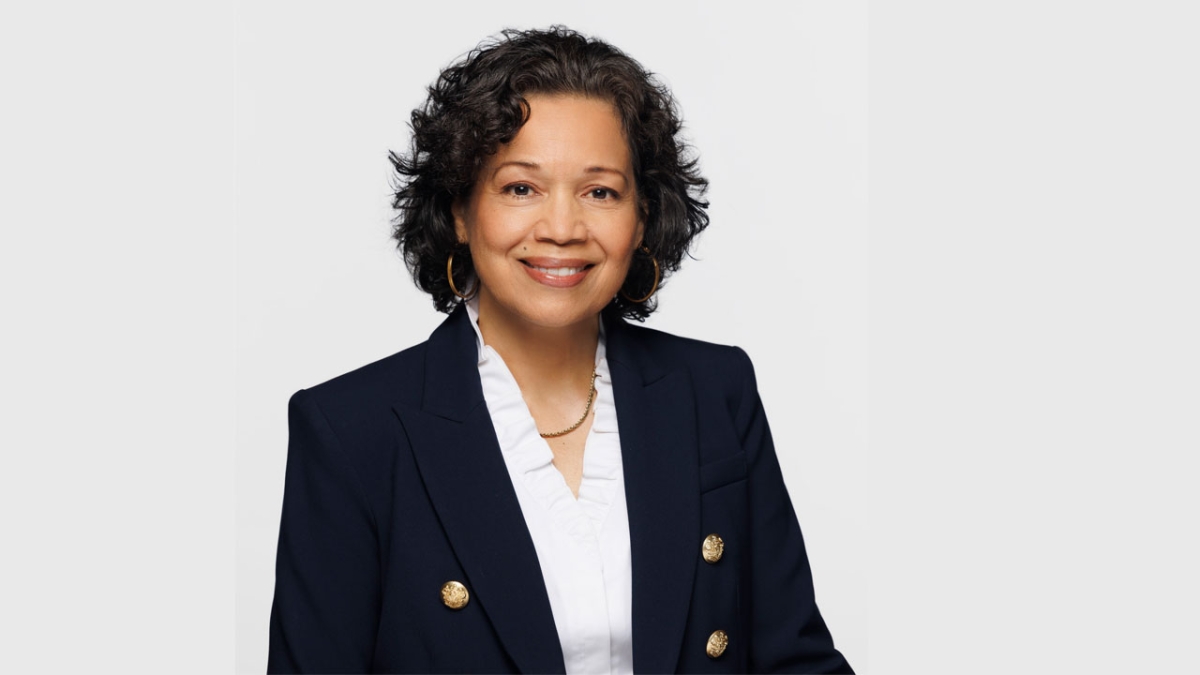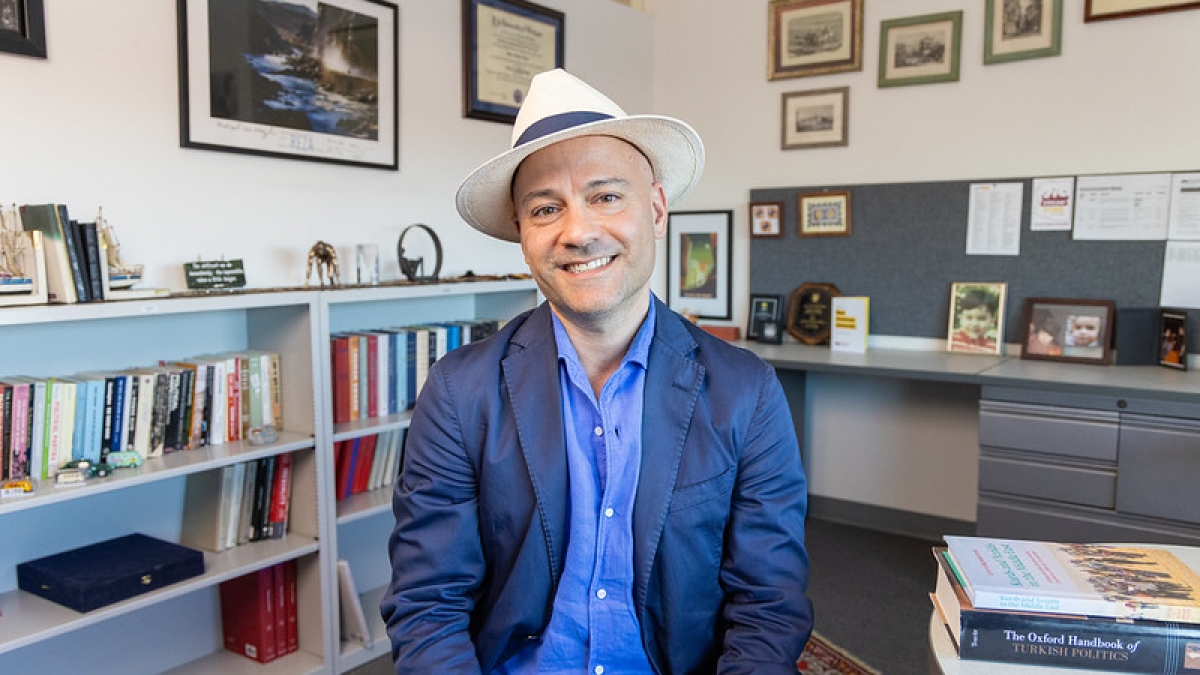New York Times lawyer speaks about being 'a reporter’s best friend’
David McCraw visited ASU to discuss the importance of the First Amendment

The First Amendment and the free press are under continual assault — withering attacks from the current president, foreign governments, outlets that produce fake news and a weary public who have grown hostile toward the mainstream media — said The New York Times’ chief legal eagle to a group of Cronkite School students Monday.
“The real threat to freedom of the press today is a hearts and mind problem," said David McCraw, who has served as deputy general counsel for The New York Times since 2002. "The real fight is that there has been an all-out war to discredit the press with statements like ‘fake news’ and ‘an enemy of the people’ and ‘journalists commit treason.’ What concerns me more than what’s being said is that it’s getting traction.
"A disbelieved press is not that different from a shackled press that we see in other countries. If the press is not believed, it loses one thing that gives it power, which is to move public opinion to serve as a check on government and to make citizens aware of that.”
McCraw’s talk, “The Press, the President and the First Amendment,” continued the fall 2019 Must See Mondays speaker series at the Walter Cronkite School of Journalism and Mass Communication, which kicked off last week on ASU’s Downtown Phoenix campus with Arizona State University football Head Coach Herm Edwards.
McCraw's appearance was at the behest of moderator David J. Bodney, a partner with Phoenix law firm Ballard Spahr LLP and an executive committee of the Cronkite Endowment Board of Trustees. McCraw also was there to promote his book “Truth in Our Times: Inside the Fight for Press Freedom in the Age of Alternative Facts.”
“For the past two decades, David McCraw has advised The New York Times and its journalists on some of the most important First Amendment issues of the day — from publishing the WikiLeaks and Edward Snowden materials to pushing back against the Trump administration’s war on the press,” Bodney said. “With 'Truth in Our Times', he has written a fascinating and profoundly important book about ‘the fight for press freedom in the age of alternative facts.’ David’s message should be heard by journalists, lawyers and everyone who cares about the future of press freedoms in these unprecedented times.”
Indeed, these are unprecedented times, confirmed McCraw, who spoke on a variety of issues that are chipping away at the freedom of the press.
“If you look at Watergate, the Civil Rights movement and Vietnam, the press played an incredible role in raising awareness of those events and forming a national consensus. … My hope is that’s a role the press can still play,” McCraw said. “But the depth of the polarization of the country makes it difficult with the overlay of the internet and the overwhelming amount of information out there, the amazing amount of hate speech and fake news, all that other stuff that makes it difficult to be a citizen right now. I think all of this creates an opportunity for the mainstream media to be a voice that you can trust, but at the same time, I understand why people are so skeptical. There’s just so much out there that flows through society.”
McCraw, who is an adjunct professor at New York University Law School and a visiting lecturer at Harvard, said the media historically has played the role of honest broker/gatekeeper, and the reason why there has been public antipathy towards mainstream media is that the internet awards loud noise and attention, not quality.
“The pressure is to always create the most spectacular, the most outrageous, the most extravagant,” McCraw said. “It does not reward quality and it does not reward the truth, and that’s why you end up where we are. … We at times have not done a great job in explaining how we’re doing it, why we’re doing it and why we’re different.”
McCraw said that’s why it’s important that people like him are out in the public eye talking about First Amendment issues so that journalists can continue doing their jobs without interruption. He said his job duties consist of filing Freedom of Information Act requests, defending the Times against libel suits and providing legal counsel to reporters, vetting stories and providing resources for their security.
“The world is a much worse place than it used to be,” McCraw said regarding kidnapping abroad and constant threats to U.S.-based reporters. “We’ve completely changed the way we operate.”
McCraw said one of his responsibilities is to keep foreign correspondents safe in hostile environments and protect the news operation in the Big Apple. That included hiring a security firm, instituting a 24/7 threat line and placing barricades in front of the building to prevent car bombs.
The author and attorney has brought more Freedom of Information Act cases than any other newsroom lawyer in America. He said he filed more than 30 cases against the Obama administration and has filed 27 against the Trump presidency so far.
“The argument is that it’s very important that government be held to the letter of the law. … In many cases the agencies say, 'No, we’re not going to give you these documents,’” McCraw said. “It occurred to me that if the citizen or requestor shrugs and walks away, we’re leaving federal bureaucrats to decide how transparent the government is.”
Being a former journalism major, reporter and columnist, McCraw has developed a reputation in the newspaper industry as “a reporter’s best friend.”
“We (attorneys) do a disservice to journalists when we don’t help them,” McCraw said. “Let’s have a freedom of the press. Let’s go do the hard stories. The law will protect you.”
McCraw put that sentiment to the ultimate test when Donald Trump’s attorney threatened to sue the Times if they didn’t retract a 2016 article focused on two women who accused Trump of touching them inappropriately. McCraw’s scathing rebuttal letter went viral, which brought him to the national forefront for a time.
“I had my 15 minutes of fame, which is about 14 and a half minutes longer than anyone needs,” McCraw joked.
McCraw encouraged Cronkite students to be persistent and fair as they enter the field after they graduate. He said to stay with a story and “keep asking questions, and then report against yourself. If you think you have the story, try to disprove it. If you try that and the story stands up, you know you have it right.”
Top photo: The New York Times' deputy general counsel and author David McCraw talks about "The Press, The President and the Future of the First Amendment" along with moderator and Phoenix-based First Amendment attorney David J. Bodney at Must See Mondays at the Cronkite School on Monday, Sept. 23, 2019. Photo by Charlie Leight/ASU Now
More Law, journalism and politics

ASU justice studies students examine fairness of Tempe courts
A courtroom can be an intimidating place, but a group of Arizona State University students want citizens to know it's there to serve them. As part of a course taught by Associate Teaching Professor…

CBS News president to give keynote address at Cronkite School’s spring convocation
Ingrid Ciprián-Matthews, president of CBS News, will serve as the keynote speaker at Arizona State University’s Walter Cronkite School of Journalism and Mass Communication spring 2024 convocation. …

School of Politics and Global Studies director's new book explores mass violence
Why do people commit atrocities and why are certain groups, including religious and ethnic, more vulnerable to large-scale violence? These questions are explored in a new book by Güneş Murat Tezcür…